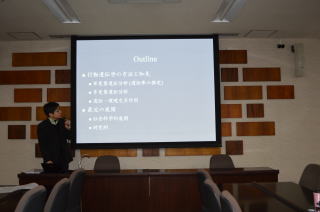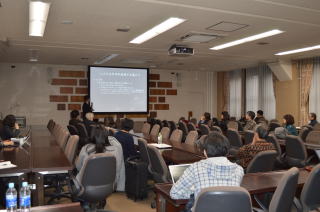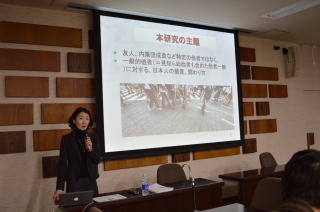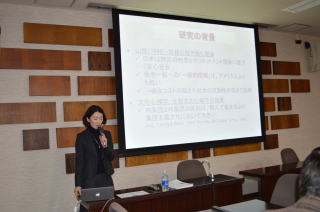Events
Social Psychology Colloquium: New Series
<Colloquium in Academic Year 2023>
"Rule Design: A Dynamics Control Perspective"
Date:May 19, 2023 16:00-17:30
Place:Online
| Speaker | Takahiro Ezaki (Project Lecturer, The University of Tokyo) |
|---|---|
| Title | Social Rule Design: A Dynamics Control Perspective |
"Boundary conditions of partisan selective exposure"
Date:March 5, 2020 16:00-17:30(CANCELLED)
Place:Faculty of Law and Letters Bldg 2, Lecture Hall 1 (No.31 on this map)
| Speaker | Tetsuro Kobayashi (Associate Professor, City University of Hong Kong) |
|---|---|
| Title | Boundary conditions of partisan selective exposure |
| Abstract | Partisan selective exposure has been repeatedly reported in the literature of American political communication, which is seen as one of the potential causes of the online echo chamber and political polarization. However, partisan selective exposure has not been robustly observed in other contexts than in the US. This talk will introduce a series of work that aims at delineating the boundary conditions of partisan selective exposure with a specific focus on cross-national comparison and the form of identity. First, I will report a cross-national study using a mock online news website in the US, Japan, and Hong Kong. While selective exposure is reliably replicated in the US, it was weaker in Hong Kong and was nearly absent in Japan. Next, using datasets collected in Hong Kong, where Chinese and Hong Kongese identities are constructed in a nonmutually exclusive way, I will demonstrate that (1) partisan selectivity in media use is reliably detected among those with single Hong Kongese identity, but not among those with dual identities of Hong Kongese and Chinese, (2) the political use of social media polarizes the attitudes and affects of single identifiers, whereas it has depolarizing effects on dual identifiers, and (3) these contrasting effects on polarization between single and dual identifiers have downstream consequences for political participation. Through this series of studies, I would like to discuss the generalizability of partisan selective exposure, which is becoming established under the strong influence of studies in the US. |
| Language | Japanese |
"Why do humans reason?"
Date:October 8, 2019 16:00-17:30
Place:Faculty of Law and Letters Bldg 2, The Teacher's Lounge
| Speaker | Hugo Mercier (Permanent CNRS Researcher, Institut Jean Nicod, CNRS) |
|---|---|
| Title | Why do humans reason? |
| Abstract | The interactionist theory of reasoning suggests that the main function of human reasoning is to exchange reasons in social contexts: to justify our actions, argue for our point of view, and evaluate the reasons offered by others. In support of this view, I review evidence showing that (1) human reasoning is biased in the expected manner (i.e. myside bias), (2) argumentative competence is universal and early developing, (3) there is an asymmetry in the way people evaluate their own and other people's arguments, and (4) the improvement of performance in group discussion stems from sound argumentative competence. |
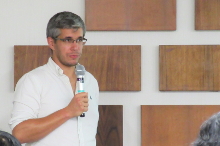
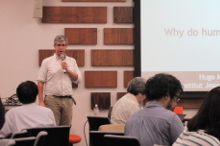
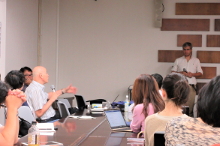
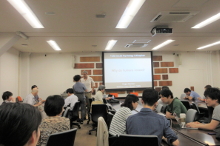
<Colloquium in Academic Year 2018: Finished>
"Deciphering individuals' interactions involved in the coordination of three-dimensional nest construction in ant colonies"
Date:September 10, 2018 16:00-17:30
Place:Faculty of Law and Letters Bldg 2, The Teacher's Lounge
| Speaker | Guy Theraulaz (Research Director, Centre de Recherches sur la Cognition Animale, CNRS) |
|---|---|
| Title | Deciphering individuals' interactions involved in the coordination of three-dimensional nest construction in ant colonies |
| Abstract | The amazing ability of social insects to solve everyday-life problems, also known as «swarm intelligence» has received a considerable attention the past twenty years. One of the most famous feats of insect societies is their ability to build impressive nest architectures. Not only their characteristic scale is typically much larger than the size of individual insects but some of these nests can also be highly complex. The evolution of construction techniques used by ants, wasps, bees and termites has provided a whole set of innovations in terms of architectural designs that proved to be efficient to solve problems as various as controlling nest temperature, ensuring gas exchanges with the outside environment or adapting nest architecture to growing colony size. How these efficient designs emerge from the combination of millions of local building actions performed by individual workers? And how do insects coordinate their building actions? To investigate these issues, we focused on the early stages of nest construction in the garden ant Lasius niger. This experimental paradigm was used to disentangle the coordinating mechanisms at work and characterize individual behaviors (transport and assemblage of construction material) and the stigmergic interactions involved in the coordination of building actions. We then developed a 3D model implementing the behavioral mechanisms detected on the individual level and showed that they correctly explain the construction dynamics and the spatial patterns observed at the collective level for various conditions. Our model shows that the evaporation rate of a building pheromone is a highly influential parameter on the phenotypic plasticity of nest architectures. The model also reveals that complex structures such as helicoidal ramps connecting nearby chambers emerge from a constant remodeling process of the nest architecture. Through this particular example we will illustrate the methods we routinely used to understand collective intelligence phenomena in animal and human groups. |
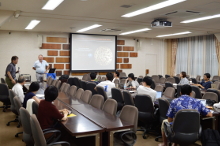
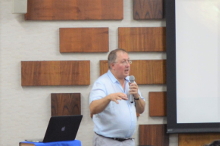
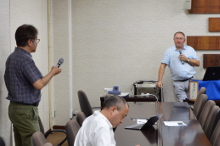
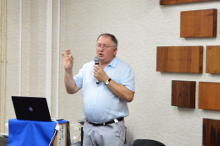
"Can evolution explain morals?"
Date:May 25, 2018 16:00-17:30
Place:Faculty of Law and Letters Bldg 2, The Teacher's Lounge
| Speaker | Hisashi Ohtsuki (Lecturer, The Graduate University for Advanced Studies) |
|---|---|
| Title | Can evolution explain morals? |
| Abstract | Moral is our thoughts and attitude that is unwritten, but does give a judgement of right or wrong on our deeds. A socially-shared moral becomes a social norm that practically binds our behaviour. Given that human mind and culture are products of natural selection, it ie reasonable to assume that even our social norm can be studied by means of evolutionary biology. Through mathematical modelling, I have worked on this topic for many years. In this talk, I will talk about recent progresses on two issues: 1) what type of social norms can realize cooperation, and 2) what type of social norms can evolve by natural selection. |
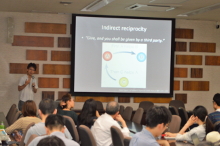
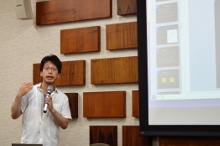
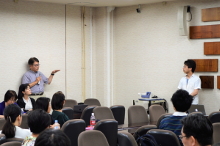
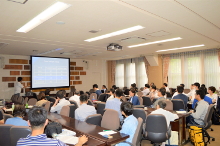
<Colloquium in Academic Year 2017>
"Social Neuroscience of Honesty" & "Philosophical Implications of Empirical Studies of Morality"
Date:February 13, 2018 13:30-17:00
Place:Faculty of Law and Letters Bldg 2, Lecture Hall 1
| Speaker | Nobuhito Abe (Associate Professor, Kyoto University) |
|---|---|
| Title | Social Neuroscience of Honesty |
| Speaker | Takayuki Suzuki (Associate Professor, The University of Tokyo) |
|---|---|
| Title | Philosophical Implications of Empirical Studies of Morality |
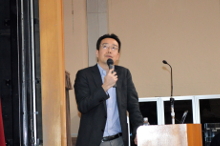
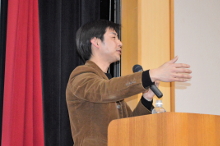
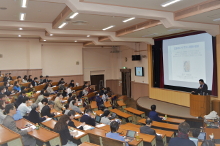
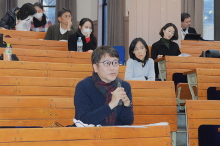
“Prosocial behavior in young infants and adults: Fairness, helping and sympathy"
Date:July 21, 2017 15:00-16:30
Place:Faculty of Law and Letters Bldg 2, The Teacher's Lounge
| Speaker | Shoji Itakura (Professor, Kyoto University) |
|---|---|
| Title | Prosocial behavior in young infants and adults: Fairness, helping and sympathy |
| Abstract |
The early development of prosocial behavior has become an important topic in developmental psychology. In my talk, I will report our original studies concern to this topic. 1) Fairness in infants: The present study investigated whether 15-month-olds react differently to events that instantiate fair and unfair distribution of resources performed by agents that have previously performed a helping or hindering action towards a third party. 2) Empathy of infants: We show that preverbal 10-month-olds manifest sympathetic responses, evinced in their preference for attacked others according to their evaluations of the respective roles of victim, aggressor, and neutral party. These findings indicate that 10-month-olds not only evaluate the roles of victims and aggressors in interactions but also show rudimentary sympathy toward others in distress based on that evaluation. 3) Understanding of need in infants and prosocial behavior: Here we show that infants understand others’ needs already in the first year and, furthermore, that this understanding translates into helpful action at the beginning of the second year, given sufficient motor abilities and skills for social engagement. This is shown by the close link between infants’ understanding of others’ needs and their helping behavior. Importantly, this link is established by their fine motor abilities and their social engagement that both moderate this effect. Furthermore, infants’ fine and gross motor abilities as well as their social engagement with the experimenter were closely related to infants’ helping behavior. |
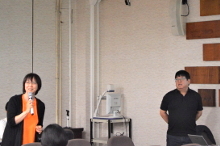
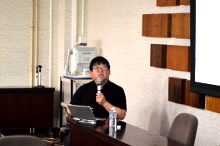
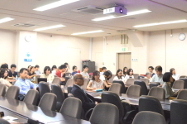
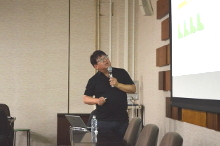
“Caretakers' Legal Liability for Accidents Caused by Elderly Dementia Patients: Social Impacts of Court Judgments and ADR Decisions”
Date:June 1, 2017 16:00-17:30
Place:Faculty of Law and Letters Bldg 2, The Teacher's Lounge
| Speaker | Shozo Ota (Professor, The University of Tokyo) |
|---|---|
| Title | Caretakers' Legal Liability for Accidents Caused by Elderly Dementia Patients: Social Impacts of Court Judgments and ADR Decisions |
<Colloquium in Academic Year 2016>
“Hongo-Komaba Joint Seminar”
Date:November 25, 2016 13:00-17:45
Place:Faculty of Law and Letters Bldg 2, The Teacher's Lounge
| Title | Hongo-Komaba Joint Seminar |
|---|---|
| Outline | The Department of Cognitive and Behavioral Science (Graduate School of Arts and Sciences, The University of Tokyo) and the Department of Social Psychology (Graduate School of Humanities and Sociology, The University of Tokyo) jointly held a seminar. The seminar consisted of oral and poster presentations by emerging scholars from the two departments, showcasing their cutting-edge research. We expect the seminar to be a venue for rich and rigorous discussions with insights into further interdisciplinary research and collaboration. |
“Field Experiments Revolution in Development Economics”
Date:June 24, 2016 15:00-16:30
Place:Faculty of Law and Letters Bldg 2, The Teacher's Lounge
| Speaker | Yasuyuki Sawada (Professor, The University of Tokyo) |
|---|---|
| Title | Field Experiments Revolution in Development Economics |
| Abstract | In the last fifteen years, development economics, a sub-field in economics to study both positive and normative aspects of developing economies, transformed itself from the bottom to the top fields in economics. In my talk, I will review the core ingredients of this "revolution," i.e., development policy evaluation based on randomized controlled trials and laboratory experiments in the field. Then, I will share findings from my recent field experiments on rice planting in the Philippines and a primary education decentralization project in Burkina Faso. |
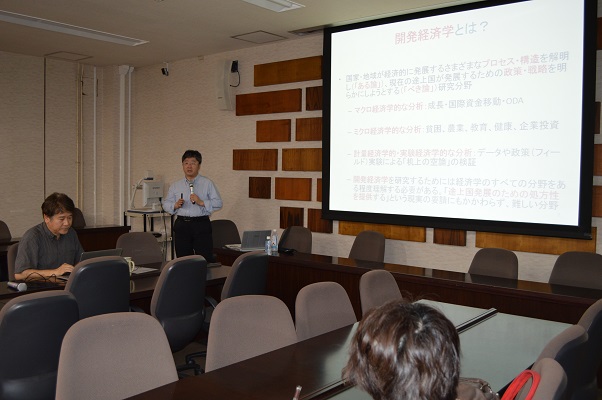
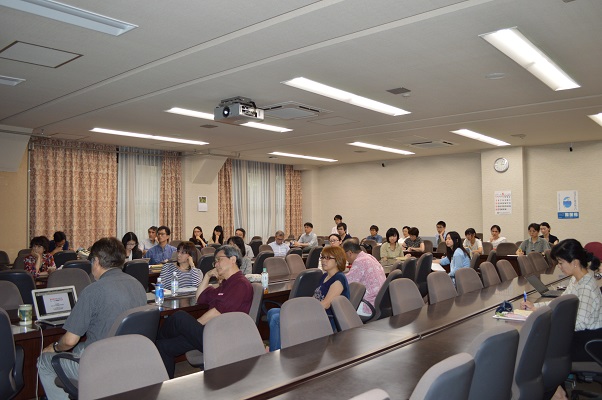
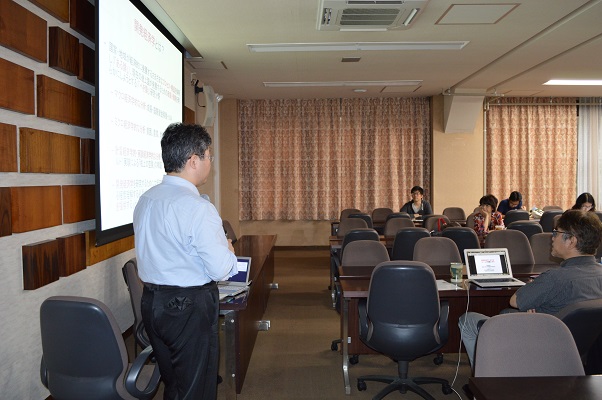
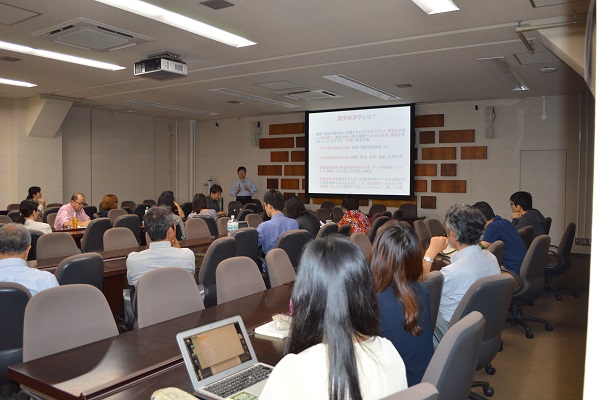
“Social endocrinology”
Date:April 22, 2016 15:00-16:30
Place:Faculty of Law and Letters Bldg 2, The Teacher's Lounge
| Speaker | Takefumi Kikusui (Professor, Azabu University) |
|---|---|
| Title | Social endocrinology |
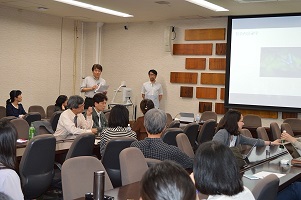
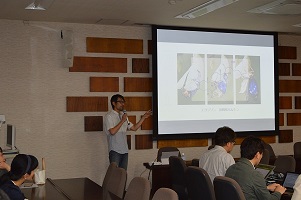
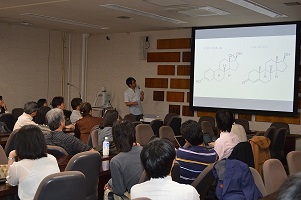
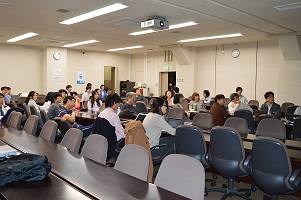
<Colloquium in Academic Year 2015>
“Opposing effects of emotional arousal on cognitive processing: When does emotional arousal facilitate and when does it impair cognitive processing?"
Date:February 9, 2016 15:00-16:30
Place:Faculty of Law and Letters Bldg 2, Lecture Hall No.2
| Speaker | Michiko Sakaki (Senior Research Fellow, University of Reading) |
|---|---|
| Title | Opposing effects of emotional arousal on cognitive processing: When does emotional arousal facilitate and when does it impair cognitive processing? |
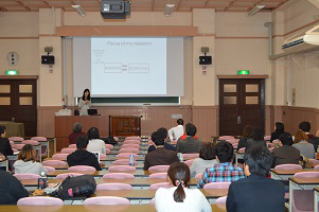
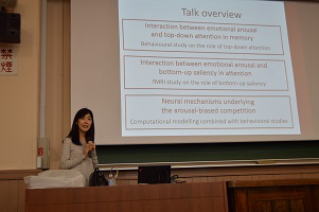
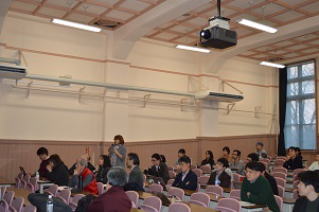
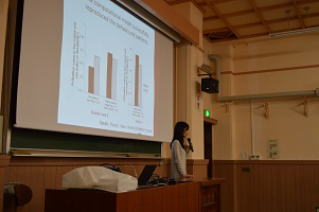
“Implicit behavioral contagion: minimalist approach versus inclusive approach”
Date:December 4, 2015 15:00-16:30
Place:Faculty of Law and Letters Bldg 2, The Teacher's Lounge
| Speaker | Katsumi Watanabe (Professor, Waseda University) |
|---|---|
| Title | Implicit behavioral contagion: minimalist approach versus inclusive approach |
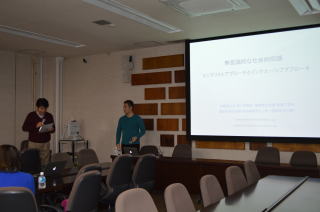
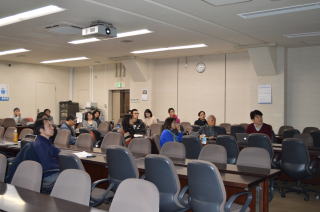
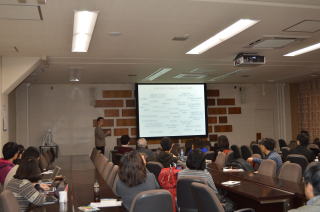
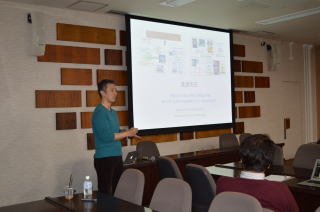
“Two neural circuits concerning generation of values and social judgments”
Date:October 16, 2015 16:00-17:30
Place:Faculty of Law and Letters Bldg 2, The Teacher's Lounge
| Speaker | Masamichi Sakagami (Professor, Brain Science Institute, Tamagawa University) |
|---|---|
| Title | Two neural circuits concerning generation of values and social judgments |
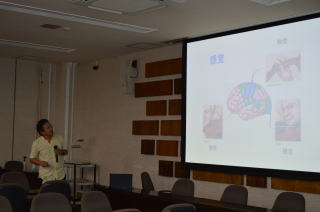
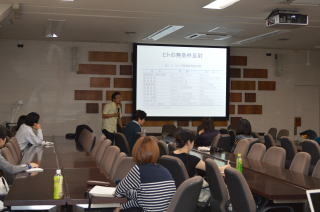
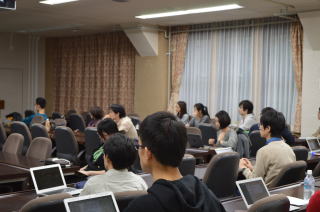
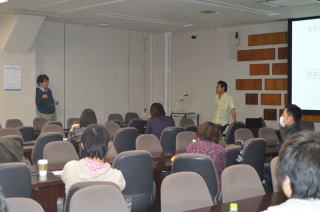
“The Psychosocial Basis of Ritual Behavior”
Date:July 17, 2015 14:00-15:30
Place:Faculty of Law and Letters Bldg 2, The Teacher's Lounge
| Speaker | Christopher Kavanagh (Ph.D. candidate, Institute of Cognitive & Evolutionary Anthropology, University of Oxford) |
|---|---|
| Title | Extreme rituals: The cognitive and social consequences of extreme ritual events: |
| Abstract | Ritual behaviour has long been a topic of interest amongst social scientists and anthropologists in particular. However, over the past decade there has been a flurry of new research by cognitive anthropologists and psychologists that has set out to examine more precisely the cognitive effects of observing and participating in collective ritual events using novel quantitative methods. In particular, new theories have emerged concerning extreme rituals and their ability to serve as a costly signal of commitment to a group and act as a ‘social glue’ generating intense relational bonds amongst participants. This talk summarises the major new cognitive theories of ritual and discusses the evidence for their role as social technologies for bonding and reinforcing group identity. New results from the large, international ‘Ritual, Community & Conflict’ project led by researchers at Oxford University are discussed along with recent evidence collected by the author from a variety of fire walking and cold water immersion ritual events held across Japan. |
“Cognitive and Physiological Bases of Group Life: Sociality of Crows and Sociality of Primates”
Date:May 8, 2015 14:30-18:00
Place:Faculty of Law and Letters Bldg 2, The Teacher's Lounge
| Speaker | Ei-Ichi Izawa (Associate Professor, Department of Psychology, Keio University) |
|---|---|
| Title | Cognition, social ecology, and brain/body design of crows |
| Speaker | Kenji Onishi(Graduate School of Arts and Sciences, The University of Tokyo, JSPS) |
|---|---|
| Title | Genetic, hormonal, and social factors affecting sociality in primates. |
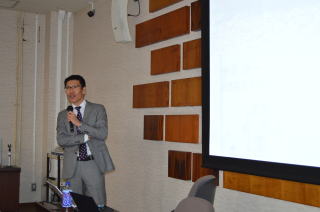
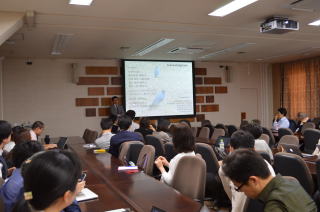
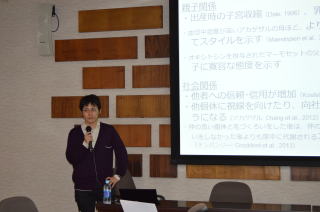
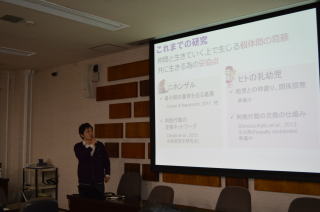
<Colloquium in Academic Year 2014>
“Thinking about the Relations between Culture, Society and Gene (2)”
Date:March 6, 2015 13:00-18:00
Place:Faculty of Law and Letters Bldg 2, The Teacher's Lounge
| Speaker | Masahiro Tsujimoto(Associate Professor, Graduate School of Arts and Letters, Tohoku University) |
|---|---|
| Title | Life history of the Japanese in Argentina |
| Speaker | Keiko Ishii(Associate Professor, Faculty of Letters, Kobe University) |
|---|---|
| Title | Cultural neuroscience: Recent findings and the implications |
| Speaker | Hiroshi Shimizu(Assistant Professor, Graduate School of Integrated Arts and Sciences, Hiroshima University) |
|---|---|
| Title | A theoretical approach to the origin of morality: The dynamic interdependence theory and the institutional analysis |
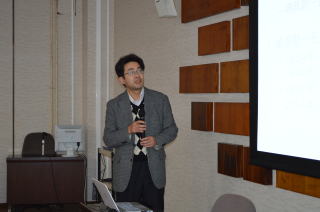
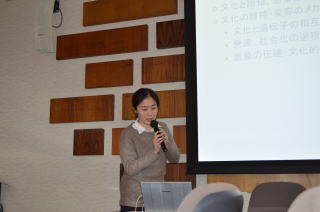
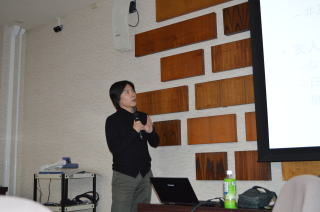
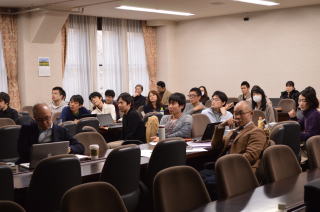
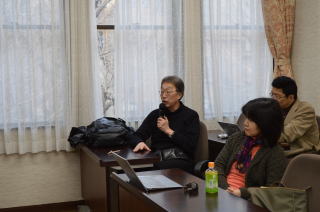
“Thinking about the Relations between Culture, Society and Gene (1)”
Date: February 12, 2015 15:00-18:00
Place: Faculty of Law and Letters Bldg 2, The Teacher's Lounge
| Speaker | Shinji Yamagata (Associate Professor, Faculty of Arts and Science, Kyushu University) |
|---|---|
| Title | Human behavior genetics: Methodology and its application to social sciences |
| Abstract | Human behavior genetics (HBG) provides methodology to differentiate between genetic and environmental influences that are otherwise confounded. In this presentation, three methods in HBG are explained: (1) univariate genetic analysis (i.e. estimation of heritability), (2) multivariate genetic analysis (i.e. decomposition of covariance between traits into genetic and environmental sources), (3) analysis of gene-environment interaction (i.e. differential effects of genes by environment). Major findings in HBG using the three methods are reviewed. Also, usefulness of applying HBG to research in social sciences are discussed. |
| Speaker | Motoko Harihara (Instructor, School of Arts and Sciences, Tokyo Women's Christian University) |
|---|---|
| Title | Cultural differences in attitudes toward others and social network structure between Japanese, Korea, and the United States |
